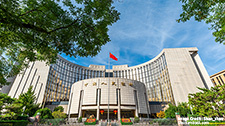Elevating Democracy via Transatlantic Collaboration

Maud Descamps
In collaboration with the U.S. Embassy in Stockholm, the Institute for Security and Development Policy (ISDP) organized a series of conference events from March 11 to 14, 2024, held in various locations including Stockholm, Gothenburg, and a final closed-door roundtable in Luleå with local stakeholders. The goal was to raise awareness and encourage dialogue on the challenges posed by authoritarian regimes exploiting international research collaborations and corporate ownership for illiberal purposes.
The open event featured several prominent speakers, including Dr. Rebecca Spyke Keiser, the first Chief of Research Security Strategy and Policy (CRSSP) at the National Science Foundation (NSF), who discussed the JASON report on Safeguarding the Research Enterprise (accessible at https://encr.pw/irsXL). Other speakers included Dr. Jeffrey Becker from the Center for Naval Analyses, Dr. Tommy Shih of Lund University, Ms. Kristina Sandklef, an independent senior China analyst, Ms. Elisabet Lann, Deputy Mayor of Gothenburg, Mr. Magnus Sundemo, formerly of Volvo, Dr. Andreas Göthenberg from STINT, Dr. Erik Mo Welin of the National Knowledge Center on China, and Mr. Gunnar Hökmark of the Stockholm Free World Forum.
Over the past decade, there has been a notable increase in foreign influence over critical infrastructure and strategic industries across the EU, with Beijing particularly acquiring stakes or full ownership in companies providing essential services or leading technological innovation. This trend poses significant risks, as such control could allow China to exert undue pressure on national economic or security policies within these strategic sectors. Additionally, investigations have revealed that authoritarian regimes might be systematically leveraging scientific collaborations to gain access to intellectual property and dual-use technologies with military and domestic security applications, undermining the principles of open, liberal research.
Despite these concerns, international collaboration remains vital for innovation. Severing all intellectual and financial ties with authoritarian states is neither feasible nor desirable, as research thrives in diverse, global environments where various perspectives and expertise converge. This raises a critical issue: How can we maintain transparent, constructive collaboration that advances knowledge while protecting national security and economic interests?
To address this, ISDP advocates for the creation of a transatlantic platform that brings together scholars, government representatives, and private sector leaders. Such a platform would enable the exchange of experiences and coordination of strategies, recognizing that these challenges demand broad international consensus rather than isolated state-level responses. The conferences aimed to raise awareness and promote a nuanced understanding by examining the risks throughout the innovation ecosystem, sharing best practices that encourage transparency and critical thinking, and developing a research security strategy that preserves the benefits of international cooperation.
Related Publications
-
Safeguarding intellectual property in the wake of digital authoritarianism: An Interview with DR. REBECCA SPYKE KEISER
Dr. Rebecca Spyke Keiser is the Chief of Research Security Strategy and Policy (CRSSP) at the National Science Foundation (NSF). The U.S. National Science Foundation is an independent federal agency […]
-
The US and EU, and the Emerging Supply Chain Network: Politics, Prospects, and Allies
The Global Supply Chains have evolved from simply logistical achievements to being the bedrock of the global economy. Driven by technological advances and geopolitical shifts, this transformation underscores the critical […]
-
The Political Split at the Heart of Taiwan’s Struggle against Foreign Disinformation
Taiwan’s struggle against foreign disinformation and concerns about China’s impact on its 2024 election has received much international attention recently. This issue brief examines the domestic and international politics behind […]
-
ISDP Annual Report 2023
ISDP’s Annual Report for the year 2023. We look back on 2023, a year in which tensions and conflicts captured the strategic space in ISDP’s focus areas, making headlines around […]
-
The Economic Leash: China’s Financial Tethers and Global Power Plays
China’s emphasis on Gross Domestic Product (GDP) growth and its integration into global markets have allowed it to wield significant influence internationally. Nonetheless, this focus on rapid expansion has created […]




